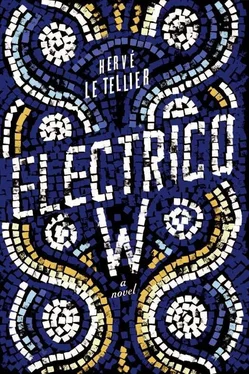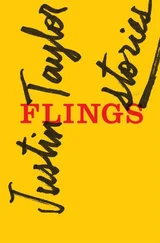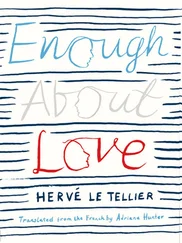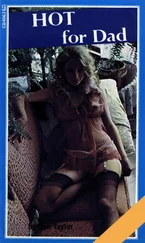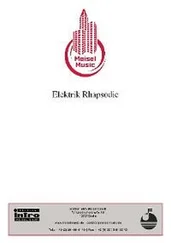On the planet FH76, the bodies of living beings are not fused to their spirits. This means that the spirit can sometimes die long before the body. The latter carries on eating, running, conversing, or even copulating to the death. Bodily activity can continue for several years without anyone noticing a thing.
Finding an editor for Liquid Tales would have been sensible, but I was beginning to feel, like Gertrude Stein, “If it can be done, why do it?” I was afraid that, as soon as an agreement was reached, I would be far less motivated. I was translating the four hundred and third tale when there was a knock at my door.
It was Custódia. He had climbed the three floors slowly but was flushed and out of breath.
“I was just checking you’re here,” he said, raising his hat. “And, anyway, the shelves are too heavy for me to bring them up on my own. Where are they to go?”
I asked him in and showed him the wall. The drawing of Duck was there, framed, beneath the window. But he didn’t look at it. He just tapped the wall with a finger and listened to its resonance.
“We could hang it off the ground here, if you like. It’s a weight-bearing wall and it would hold up well. It would look better and keep the floor space clear. I made it with brackets and I’ve brought my drill.”
I nodded and we went downstairs. I was behind Custódia; he was losing his hair and his bald patch revealed the first liver spots. He was probably not yet sixty but was as worn as his gray cardigan. A nasty man, a brute even, was what his neighbor Pita had said. I just felt sorry for him.
We unloaded the frame from the truck, it was incredibly heavy. Custódia handed me some gloves.
“Oh yes, it’s definitely not balsa wood. We’ll take the shelves up separately.”
We took a rest on each landing and when we reached my studio, I went in first and saw the portrait of Duck. I was suddenly terribly ashamed of stooping so low, being so abject. I flipped the picture to face the wall, to hide his daughter’s face from Custódia. I didn’t want to produce such pointless pain. It didn’t matter anymore.
We put the frame against the wall, went down for the shelves, and came straight back up without exchanging a word. Custódia marked out the screw holes with a pencil. Then he moved the frame a few inches to one side to get to a socket, drilled deep into the wall, and inserted the pegs. I held the shelf unit and he secured it with a few turns of the screwdriver. The result wasn’t at all bad. Custódia had added a frieze and some moldings, filled the joints with wood glue, and waxed the unit. Moments later we had put the shelves in.
“Your books?” Custódia asked. “Shall we put them in to see what it looks like?”
“I–I don’t have any. In a trunk, somewhere else. I’ll bring them over.”
Custódia pulled on the cord of his drill and that was when he caught the portrait. It fell onto the tiled floor and the glass broke. Custódia swore and apologized.
“I’ll mend it,” he said, “don’t you worry about it.”
Before I had a chance to react he was assessing the damage, turning the frame over in his hand. He looked at the portrait for a long time, then leaned it back against the wall.
“I’m sorry.”
“It’s just glass, really.”
“I mean forgive me for looking at the picture for so long. She looks so like my daughter.”
Custódia nodded, it was impossible to know what he was thinking, and all at once I was afraid Duck might be dead. It was this fear rather than deceitfulness that made me ask, “Your daughter?”
“Yes.”
“How — how old is she?” I persisted, hoping for reassurance.
“Twenty-seven. Is it someone you know, the woman in the picture, or did you buy it just like that?”
“She’s … a friend. I drew it.” And to prove the point I showed him the charcoal still lying on my desk. Custódia put away his tools. I felt fate had decided for me, and I didn’t have the right to let the opportunity go.
“And … do you have grandchildren?”
“Two. A boy and a little girl.”
Custódia stood up with a sigh and dusted himself off.
“How old are they?”
“The boy’s eleven and the girl’s six, I think. I’m not sure. I hardly ever see them. It’s not easy, nowadays, a father-daughter relationship.”
“Tell me. She doesn’t have a red Fiat, does she? I saw a woman who looked liked this picture in a red Fiat.”
“I wouldn’t know. Honestly, we don’t see each other much. Not much at all. That’s the way it is.”
He picked up his gloves and tools and opened the door. He threw a last long glance at the portrait of Duck.
“It’s incredible,” he said. “It really is her, believe me. Actually, she works quite near here. Printers on the corner of the rua da Barroca.”
He shook my hand, his was callused, rough, he could easily have broken my fingers, but the handshake was civil. I closed the door and gathered up the broken glass. Custódia’s truck set off noisily.
Printers, on the corner of the rua da Barroca, who’d have thought it?
I remembered a story that I knew to be true, the one about a Jew who survived the Nazi camps where he lost his entire family, who emigrated to the United States and settled in Brooklyn, gradually rebuilding his shattered life. Then one day he scratched a car in the parking lot of the supermarket he went to every week. The driver was his own wife, who he thought had died. She’d been living five blocks from him for twenty years.
On the corner of the rua da Barroca. It was so simple.

I SET OFF in search of the printers and found it in a matter of minutes. It was called LisboPrint, Soares & Filhos. The metal shutter was closed. The company offered faxing and photocopying services, and the window display showed business cards, wedding invitations, and small bespoke pieces such as posters and leaflets. I ate not far from there, not as impatient to get to the next day as I would have thought.
Then I went back to my studio and opened my black notebook for The Clearing and turned on my Mac to copy out the latest sentences. It wasn’t any good. I wanted to rewrite the whole text, to put it into first-person narrative, like a private journal, to turn it into Pescheux’s inner monologue, a rambling discourse, occasionally tinged with a lyricism that I wanted to ruffle up. I tried out the effect on the first few pages: “Met Galois at Palais-Royal. He was kissing Stéphanie and didn’t see me. My whole being was instantly reduced to images. The traitress’s smile betrayed the feverishness of their every move, hidden moisture, flesh and sweat, it pierced through me till I felt nauseous, till I flinched, I pulled myself together, ran toward them, drunk with rage …”
That wasn’t very good either. I gave up.
It was late already. The radio was talking about a terrible earthquake in Mexico City, 8.2 on the Richter scale. The city was in ruins, emergency services were converging. I listened for a while, and put my few books, including Contos aquosos , onto Custódia’s shelves. Then I turned out the light but didn’t draw the curtains. I couldn’t get to sleep. Someone rang my doorbell: Antonio. I turned on a lamp but the light was too harsh for him, so we stayed there in shadow with just the glow from the street. The facade of the building opposite went from green to red, red to green, with the traffic lights at the crossroads.
Antonio asked for a drink. I put two glasses on the table and an almost empty bottle of ouzo. I opened the fridge to get a jug of chilled water, and closed it quickly so its wan light didn’t compromise the mood of trust. Tonio’s forehead was gleaming with clammy, anxious sweat. I wished he would wipe it, because I couldn’t take my eyes off that almost phosphorescent strip of skin reflecting colors on the street like a wet sidewalk. Orange, then red, back to green.
Читать дальше
